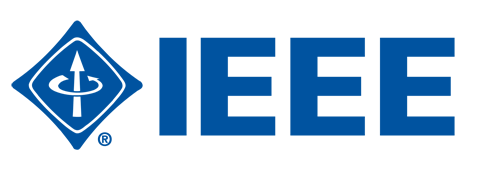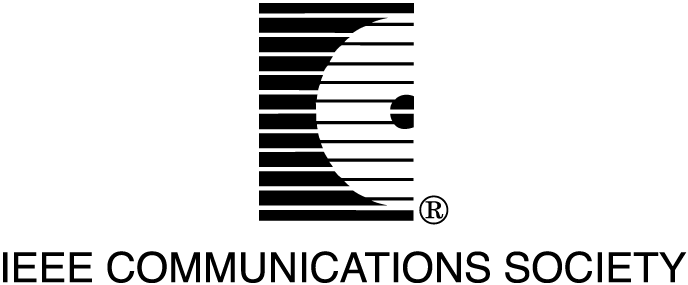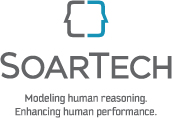Keynotes
Cognitive Architectures for Robotics
Dr. Christian Lebiere,Carnegie Mellon University
Tuesday, March 10, 2015, 7:45 am - 9:00 am
Abstract Cognitive architectures have been proposed and developed to account for a broad range of cognitive phenomena in relatively high-level abstract tasks. Robotics, on the other hand, has evolved in a largely bottom-up manner driven by the need to operate effectively in a physical world with limited perceptual and motor capabilities. We argue that both disciplines have progressed to the point where they can be of significant use to the other. Robotics provides cognitive architectures with a challenging environment in which to overcome the abstractions of early architectures and test the recent developments aimed at achieving an integrated account of embodied cognition. Cognitive architectures provide robotics with a principled theoretical framework in which to develop higher-level cognitive capabilities to complement the successes of the lower-level work on perception and motion. We illustrate potential synergies from our work in the context of the Robotics Collaborative Technology Alliance on behavior recognition, cognitive mission planning, metacognitive execution monitoring, and shared mental models for human-robot interaction.
 Christian Lebiere is a Research Faculty directing the FMS Cognitive Modeling Group in the Psychology Department at Carnegie Mellon University. He received his B.S. in Computer Science from the University of Liege (Belgium) and his M.S. and Ph.D. from the School of Computer Science at Carnegie Mellon University. During his graduate career, he studied connectionist models and algorithms and was the co-developer of the Cascade-Correlation neural network learning algorithm that has been used in hundred of practical applications and scientific papers. Since 1991, he has worked on the development of the ACT-R hybrid cognitive architecture and was co-author with John R. Anderson of the 1998 book The Atomic Components of Thought. The ACT-R cognitive architecture is used by a large international community of researchers and has been featured in hundreds of publications in the fields of Cognitive Science and Artificial Intelligence. Dr. Lebiere is a founding member of the Biologically Inspired Cognitive Architectures Society, of the International Conference on Cognitive Modeling, and of the Editorial Board of the Journal of Artificial General Intelligence and the Journal of Biologically Inspired Cognitive Architectures. His work has won the Technion Prediction Tournament and best paper awards at a number of conferences. His research has been supported by ONR, AFOSR, ARL, NASA, DARPA, IARPA, DMSO, and DTRA and by a gift from the Nissan Corporation. His main research interests are cognitive architectures and their applications to psychology, artificial intelligence, human-computer interaction, decision-making, intelligent agents, network science, cognitive robotics and neuromorphic engineering.
Christian Lebiere is a Research Faculty directing the FMS Cognitive Modeling Group in the Psychology Department at Carnegie Mellon University. He received his B.S. in Computer Science from the University of Liege (Belgium) and his M.S. and Ph.D. from the School of Computer Science at Carnegie Mellon University. During his graduate career, he studied connectionist models and algorithms and was the co-developer of the Cascade-Correlation neural network learning algorithm that has been used in hundred of practical applications and scientific papers. Since 1991, he has worked on the development of the ACT-R hybrid cognitive architecture and was co-author with John R. Anderson of the 1998 book The Atomic Components of Thought. The ACT-R cognitive architecture is used by a large international community of researchers and has been featured in hundreds of publications in the fields of Cognitive Science and Artificial Intelligence. Dr. Lebiere is a founding member of the Biologically Inspired Cognitive Architectures Society, of the International Conference on Cognitive Modeling, and of the Editorial Board of the Journal of Artificial General Intelligence and the Journal of Biologically Inspired Cognitive Architectures. His work has won the Technion Prediction Tournament and best paper awards at a number of conferences. His research has been supported by ONR, AFOSR, ARL, NASA, DARPA, IARPA, DMSO, and DTRA and by a gift from the Nissan Corporation. His main research interests are cognitive architectures and their applications to psychology, artificial intelligence, human-computer interaction, decision-making, intelligent agents, network science, cognitive robotics and neuromorphic engineering.
Situation Awareness and Decision Support within Smart Service Systems
Dr. Dylan Schmorrow, Chief Scientist, Soar Technology, Inc.
Wednesday, March 11, 2015, 7:45 am - 9:00 am
Abstract Over the past decade the Cognitive Methods research community has made great strides in developing interdisciplinary approaches to situation awareness and decision support systems. Members of the community have led the way in developing intelligent systems for defense, government, and commercial applications that emulate human decision making in order to enhance user abilities. The community has demonstrated the value of complex heterogeneous dynamical systems and the demand for these findings and technologies by society continues to grow. Nearly everyone in the modern era now expects the systems they interact with to have the capability to work on the full range of tasks expected of an intelligent agent, from highly routine to extremely difficult, open-ended problems. They expect their systems to represent and use appropriate forms of knowledge, such as procedural, semantic, episodic, and iconic; to employ the full range of problem solving methods; and to interact with the outside world, and learn about all aspects of the tasks and its performance on them.
This talk will touch upon this history and provide a vision for the future that showcases how research in Cognitive Methods is at the frontier between human-computer interaction, psychology, ergonomics and neuroscience and how it is creating revolutionary human-computer interactions. The cognitive based tools and technologies being developed and applied are enablers of Smart Service Systems. Service systems are socio-technical configurations of people, technologies, organizations, and information designed to deliver services that create and deliver value to customers and other stakeholders by satisfying the needs, wants, and aspirations of customers while achieving positive economic, social, and environmental outcomes. "Smart" service systems are systems capable of self-detection, self-diagnostic, self-corrective, or self-controlled functions through the incorporation of technologies for sensing, actuation, coordination, communication, control, etc. Therefore effective Smart Service Systems must support human decision makers and must not overwhelm human cognitive and perception abilities. Given the established value of cognitive based tools and technologies that help decision makers better understand and use the powerful systems and technology services, it is imperative that the Cognitive Methods community leverage the emergence of Smart Service Systems and the research community supporting it’s growth. Recently NSF in a “Charge-to-the-Teams” initiative stated, “Technological advances are starting to produce responsive and adaptive environments able to interact with humans. Machines now exist that can predict and understand our human preferences and small gadgets can process and provide sufficient information for decisions to be made with incredible speed. When the careful design of these environments and objects add value to humans through their responsiveness to human activity, then these constitute de-facto smart service systems.” However, the statement that really caught my attention was one that followed, namely that, “our understanding is constrained because humans are part of the real time control loop, and modeling human behavior is a challenging issue.” As a community, COGSIMA has been working this core challenge for many years and I believe is well ahead in applying what it knows. It has been by bringing together academic, industry, and military researchers in the fields of Computer Science, Human Factors, Cognitive Science and Experimental Psychology that we have been able to develop an interdisciplinary approach to situation awareness and decision support systems. It is this understanding that will help answer what I believe to be the fundamental challenge (i.e., “How can technology help us reap the rewards of the digital age without overwhelming us with complex systems and impossible interfaces?”). This talk will share knowledge to help the building of innovative roadmaps to enable emerging capabilities with the understanding that these capabilities must be the cornerstones of the plethora of systems our society is beginning to demand.

Dr. Dylan Schmorrow is the Chief Scientist at Soar Technology (SoarTech) where he is leading the advancement of research and technology tracks to build intelligent systems for defense, government, and commercial applications that emulate human decision making in order to make people more prepared, more informed and more capable. Since joining SoarTech as Chief Scientist, he has worked to advance research and technology tracks across numerous domains, expanded cross-collaboration among internal and external team members, and continues to identify science and technology transition opportunities. Additionally, Dr. Schmorrow has extensive senior-level experience in human systems, information technology and autonomy for national security applications. He was a key architect of the DoD’s sociocultural behavior research and engineering strategy and helped define the role of autonomy in DoD systems while serving as the Executive Secretary for the DoD’s Defense Science Board Task Force. His past service includes the Deputy Director, Human Performance, Training, and BioSystems at the Office of the Secretary of Defense, Program Manager for the Defense Advanced Research Projects Agency (DARPA), Research Scientist and Branch Head at the Naval Air Warfare Center, Chief Scientist for Human-Technology Integration at the Naval Research Lab, Assistant Professor at the Naval Postgraduate School, Program Officer at the Office of Naval Research (ONR), and Executive Assistant to the Chief of Naval Research. He received a commission in the U.S. Navy in 1993 and completed his naval flight training in April 1994. He retired as a U.S. Navy Captain in 2013 after twenty years of service where he was both an aerospace experimental psychologist and an acquisition professional leading research and development programs. During his naval career he helped advance foundational science for new generations of intelligent systems and human performance technologies during his naval career. He led 20+ major DoD science and technology programs including foundational programs related to Cognitive Simulation that included the: Control of Agent Based Systems (CoABS) Program which developed and demonstrated techniques to safely control, coordinate, and manage, large systems of autonomous software agents; Fast Connectivity for Coalitions and Agents Project (FASTC2AP) which developed and demonstrated techniques to extend agent-based technologies for accommodating secure web services and user-level implementations for the C6F Theatre Maritime Fusion Center; and research initiatives focused on the use of Natural Agents for the Autonomous Adaptation to Threats in Varied Environments (NATIVE) and Context-Based Computing for Command and Control that spurred new agent-based capabilities across the DoD. He is also an expert at the technical transition of DoD S&T products, having successfully transitioned several significant prototypes into operational use as well as extensive experience to help developing S&T roadmaps and providing guidance through the process. He has a Ph.D. in Experimental Psychology and was a recipient of the prestigious Navy Top Scientist and Engineer of the Year Award.
Airmen - Machine Teaming: The Future of Autonomy in the USAF
Dr. Morley O. Stone, Chief Technology Officer for Air Force Research Laboratory (AFRL), Wright-Patterson Air Force Base, Ohio
Wednesday, March 12, 2015, 7:45 - 9:00 am
Abstract In the past decade, unmanned systems have changed the nature of warfare worldwide. They have extended human reach via unlimited persistent capabilities, offering warfighters more options and flexibility to access hazardous environments, and the ability to react at speeds and scales beyond human capability. That said, current unmanned systems operate with limited autonomy. Human operators, sometimes from a few feet to thousands of miles away, must make the majority of operational decisions for control responses. To truly meet warfighter needs, unmanned systems must reduce the cognitive load currently placed on their operators/ supervisors, thereby freeing human operators to focus on more complex decision-making tasks. As unmanned systems become more autonomous, machines (agents) will be delegated increased decision making authority by their human operators. In future operational settings, an autonomous system will act in a more peer-to-peer relationship with the warfighter. Future autonomous systems will carry out missions in highly contested air, space, and cyber environments, providing warfighters increased capabilities with smaller human force structures, and the ability to operate temporally within an enemy's OODA Loop. As more autonomous technologies are fielded, their operational acceptance and success will largely depend upon calibrated operator trust, rigorous verification and validation of computer models and algorithms, operationally relevant test and evaluation criteria, and effective training regimens for the human teammates.
 Dr. Morley Stone, a member of the scientific and technical cadre of senior executives, is the Chief Technology Officer for Air Force Research Laboratory (AFRL), headquartered at Wright-Patterson Air Force Base, Ohio. As the primary science and technology adviser to the AFRL commander, he is responsible for assisting with the planning and execution an annual $2.1 billion Air Force science and technology program and an additional $2.3 billion in externally funded research and development. He also serves as the corporate-level science and technology interface for a government workforce of nearly 6,000 people in the laboratory's nine technology directorates and 711th Human Performance Wing.
Dr. Morley Stone, a member of the scientific and technical cadre of senior executives, is the Chief Technology Officer for Air Force Research Laboratory (AFRL), headquartered at Wright-Patterson Air Force Base, Ohio. As the primary science and technology adviser to the AFRL commander, he is responsible for assisting with the planning and execution an annual $2.1 billion Air Force science and technology program and an additional $2.3 billion in externally funded research and development. He also serves as the corporate-level science and technology interface for a government workforce of nearly 6,000 people in the laboratory's nine technology directorates and 711th Human Performance Wing.
Dr. Stone earned his Doctor of Philosophy degree in biochemistry from Carnegie Mellon University in 1997. He then stood up the biotechnology research team for AFRL's Materials and Manufacturing Directorate, and led the team to earn two consecutive Star Team Awards from the Air Force Office of Scientific Research. From 2003 to 2006, Dr. Stone accepted an assignment as Program Manager in the Defense Sciences Office at the Defense Advanced Research Projects Agency. He later served as Chief of the Hardened Materials Branch within the Materials and Manufacturing Directorate at AFRL. In 2007 he was appointed to senior executive service as the Senior Scientist for Molecular Systems Biotechnology in AFRL’s Human Effectiveness Directorate. There he served as the Air Force’s principal scientific authority in the field of biotechnology, through 2008. Prior to assuming his present position, Dr. Stone served as the Chief Scientist of AFRL’s 711th Human Performance Wing responsible for the technical direction of a broad, multi-disciplinary research and development portfolio focused on understanding and improving human performance. He also served as the Chair of the Department of Defense’s Autonomy Community of Interest 2011-2014.
Dr. Stone has authored more than 90 technical publications and five technical book chapters. He is on the editorial board of two international scientific journals and is a Fellow of AFRL and the International Optical Engineering Society.




